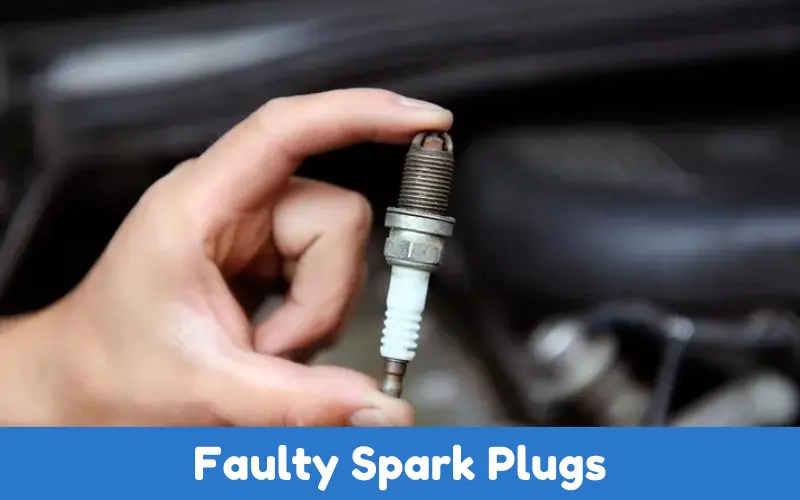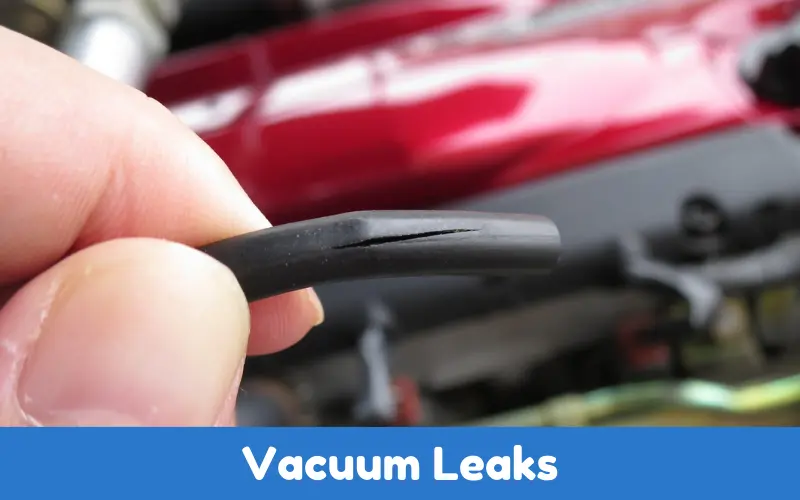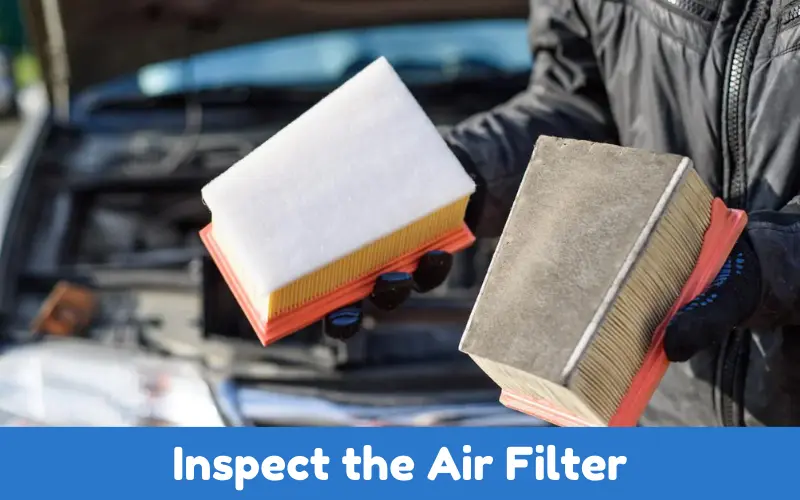A jerking sensation that occurs when accelerating your car can be scary and can ruin your ride.
There can be various issues, from spark or fuel supply to the transmission, that can be the reason behind the acceleration jerk.
So, finding out the reasons for this is necessary for the repair and for preventing the damage from getting worse.
In this article, we will briefly clarify the question: Why does my car jerk when accelerating? We will also tell you what to do and how to fix the issues.
Topic Summary
Why Does My Car Jerk When Accelerating
If you ever experience an accelerating car that jerks instead of moving smoothly, it is extremely annoying and worrying.
The jerking of your car is not only unfriendly to you during the drive but may also be an indication that your car is having mechanical problems.
If you want to know why your car jerks when accelerating, here is a complete look at the causes.
1. Faulty Spark Plugs
It’s the job of the spark plugs to ignite the air fuel mixture in the cylinders of your engine. Chances are they will become dirty or worn out after some time, and your car will judder when you accelerate because the ignition is not happening properly.

2. Dirty Fuel Injectors
Fuel injectors deliver fuel into the engine. If they become blocked or dirty, they can also block the fuel flow, which can cause hesitation or jerking when you push on the accelerator.
3. Worn Out Ignition Coils
They refer to the failure of the ignition coils that send electricity toward the spark plugs. When those fail, that can cause a misfire. Accelerating starts to feel quite jolting and bumpy.
4. Transmission Problems
Problems with your transmission can also cause an awkward jerking or hesitation when accelerating, especially if the fluid level is low or if some components of the transmission are worn down. This is especially common in automatic transmissions.
5. Clogged Air Filter
Air filter prevents dust and dirt from entering the engine. If the air filter is clogged, it may restrict the flow of air and prevent its proper mixing with fuel inside.
Because of this, the vehicle will not start smoothly. This will result in the automobile jerking while it accelerates.
6. Faulty Mass Airflow Sensor
The malfunctioning MAF (mass air flow) sensor measures the amount of air that is entering the engine and adjusts the fuel injection accordingly.
If the MAF is faulty, the car won’t use the correct air fuel mixture, and you will feel some jerking in acceleration.
7. Vacuum Leaks
At the other end of the scale, the engine control module (ECM) may have detected a vacuum leak in the intake manifold or one or more of the vacuum hoses that connect parts of the engine like the brake booster (a vacuum assisted accelerator pedal), distributor, radiator cooling fan, power steering, hot air feed to the heating system or emission control devices.

The messed up air to fuel ratio (which is essential for proper engine running) brought about by the vacuum leak leads to disruptive jerking as you move between gears.
8. Fuel Pump Issues
When the accelerator is depressed, the fuel pump moves this interior plunger, thus sending fuel from the tank to the carburetor and into the engine.
A fuel pump that has failed is unable to transport the appropriate amount of fuel, leading to knock or jumpiness in acceleration as well as jerking while idling.
How To Fix Car Jerk When Accelerating
If your car starts to jerk once you step on the accelerator, it is extremely important to diagnose the problem and bring the car back to work perfectly. Here is a guide to fix this simple problem:
Check and Replace Spark Plugs: Worn or fouled spark plugs can cause spark hopping, which results in jerking.
If spark plugs have been in the car for several years, check and replace them. Check the gap between the electrodes and replace the plug if it seems too big.
Check Fuel Injectors: Dirty or faulty fuel injectors can disrupt the fuel flow, causing the surging. Clean or replace fuel injectors as required to obtain consistent fuel delivery.
Inspect the Air Filter: A dirty air filter restricts airflow to the engine. If the air filter is dirty or clogged, replace it.

Check Transmission Fluid Level: Low or dirty transmission fluid can cause jerky acceleration. Check the transmission fluid level and/or quality, and top up or replace as needed.
Check Throttle Position Sensor (TPS): If this is faulty, the engine will get erratic. Get the TPS tested and replaced if it’s faulty.
Look for vacuum leaks: If your engine is losing a vacuum, it will affect its performance. Check all lines, hoses, and connections for leakage and replace or repair as necessary.
If this does not fix the issue, you can take the vehicle to a mechanic for diagnostics and repair.
Is it bad To drive a car that jerks when accelerating?
Driving a jerking car is not good and probably dangerous.
Jerking is an indicator of problems that can include bad plugs, dirty fuel injectors, and transmission problems, and ignoring it can put more into it and cause more costs on repairs.
Depending on the problem, if you continue driving with the problem, the vehicle’s performance will not be normal, and it probably will not last that long anyway.
More importantly, safety is another huge concern, which can result in loss of control. Jerking will also cause a change in your driving experience and overall ride.
Anything foreign to the car can start a chain reaction with other components. With these problems, it’s better to get the vehicle inspected and repaired as soon as possible to keep the vehicle operating how it should and prevent further damage and problems with the vehicle.
If your vehicle jerks, take it to get it inspected and repaired before more damage occurs and to keep the vehicle safe to operate.
FAQs on Why Does My Car Jerk When Accelerating
What Does It Mean If My Car Jerks When I Accelerate?
The car jerks when you accelerate because something is wrong with the engine, the transmission, or the fuel system. The possibilities include faulty spark plugs, dirty fuel injectors, problems with the transmission, or some other component in the ignition system. If you’re aware of what specifically is causing the problem, it is easier to fix it.
How Can I Tell If My Spark Plugs Are Causing My Car To Jerk?
Rough idling, poor acceleration, and difficult starting characteristics of a worn spark plug. If your vehicle jerks when accelerating, check the spark plugs for wear or deposits, as they may be the problem. Replace spark plugs with worn, dirty plugs.
Can A Dirty Air Filter Cause My Car To Jerk?
Definitely yes. An air filter acts like a gateway for air entering the engine. If the air filter is clogged full of dirt, the proper amount of air will not reach the engine. Due to this restrained airflow, the engine will underperform, and there will be jerking during acceleration. Without getting dipped into too many gear changes, I’ll just say that this kind of indicator is inevitable when you don’t change the air filter when you should..
How Do I Know If My Transmission is Causing the Jerking?
Another clue that transmission is to blame for the jerking is jerking with additional symptoms such as slipping gears, difficult or delayed shifting, or other unusual noises. When jerking and any of the above are present, have your transmission inspected.
What Should I Do If My Car Jerks?
Find a mechanic who is trained to perform a diagnostic check. He could trace the cause to the fuel system, a faulty ignition component, or some other part of the engine.
Conclusion
As soon as the car jerks while accelerating, it is necessary to take steps to resolve the problem, prevent additional damage, and provide a comfortable driving experience.
Many of the common causes of the car’s jerking while accelerating can be prevented with proper care and timely repairs.
If you are not sure what the reason is or how to fix it, you should consult a car mechanic to determine the potential problem and take action to address it.

